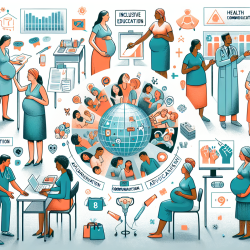Introduction
As a practitioner dedicated to improving outcomes for children, understanding the broader context of health interventions is crucial. The research article titled "Developing Effective Health Interventions for Women Who Inject Drugs: Key Areas and Recommendations for Program Development and Policy" offers valuable insights that can enhance your practice. This blog will explore the research findings and provide actionable recommendations to help you improve your skills and encourage further research.
Understanding the Unique Needs of Women Who Inject Drugs
The research highlights the gender-specific health risks and barriers faced by women who inject drugs. Compared to their male counterparts, these women experience higher mortality rates, increased injection-related problems, and higher rates of HIV. Understanding these disparities is essential for developing effective interventions.
Key Recommendations for Practitioners
- Addressing Relationship Dynamics: Women who inject drugs often have overlapping sexual and injection networks, increasing their risk of HIV. Practitioners should focus on interventions that address relationship dynamics and empower women to make safer choices.
- Integrating Sexual and Reproductive Health: Improved sexual and reproductive healthcare is crucial for women who use drugs. Practitioners should advocate for integrating these services into harm reduction programs.
- Providing Comprehensive Support: Multifaceted interventions that address housing, employment, and the needs of children are more effective in reducing risky practices. Practitioners should collaborate with multidisciplinary teams to provide holistic support.
Encouraging Further Research
The research underscores the need for more systematic data collection on women who inject drugs globally. Practitioners are encouraged to engage in further research to better understand the unique needs of this population and develop targeted interventions.
Conclusion
By implementing the recommendations from this research, practitioners can enhance their skills and contribute to better health outcomes for women who inject drugs. For a deeper understanding of the research findings, I encourage you to read the original research paper: Developing Effective Health Interventions for Women Who Inject Drugs: Key Areas and Recommendations for Program Development and Policy.










